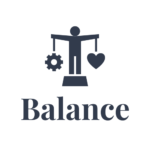Last Updated on April 22, 2024 by Treana Wunsch
Struggling with inefficiencies and looking for a systematic solution? Systemizing your business operations is about consistency. It enables growth and ensures your team can excel with clear processes.
This guide delivers straightforward, practical steps to systemize your operations. It’s a tune-up of productivity and paves the way for scaling up. It does this without overwhelming you with jargon or unnecessary details.
Key Takeaways for Systemizing Your Business Operations
- Creating systems replaces chaos with order. It boosts productivity, enables effective delegation, and fosters a culture of continuous improvement.
- Systems to put in place include marketing, bookkeeping, CRM, and Standard Operating Procedures (SOPs).
- Leverage technology such as automation tools and project management software to streamline operations. Embrace a mindset of continuous improvement for sustained success.
The Importance of Systemizing Your Business Operations
Consider systems as the compass of your organization. They guide every aspect of your operations, ensuring you remain on track toward your goals. It’s about creating a “machine” that operates smoothly. Each part performs its function for the success of your business. In essence, building systems is about replacing chaos with order.
Business systemization is your virtual management team. It takes care of routine tasks while you focus on strategic growth and your strategy. With the right systems in place, you can delegate effectively. This bolsters productivity and builds trust within your teams. Implementing a well-designed business process can further enhance these benefits. It’s time to start building business systems that work for you.
Moreover, these systems foster a culture of continuous improvement and success. They enable your team members to contribute valuable insights into day-to-day processes.
Boosting Productivity and Reducing Errors
A significant productivity boost is one of the standout benefits of business systemization. It’s like injecting your business with a potent dose of efficiency steroids. How does it work? By standardizing processes and ensuring SOPs are accessible, you cultivate an environment where everything flows.
Systems prevent errors that can compromise your business’s reputation and customer satisfaction. With guidelines and consistent methods, your team can navigate their tasks with confidence. They know they have a reliable roadmap to guide their actions. As a result, every component performs its function.
Facilitating Scalability and Growth
Any ambitious business owner considers growth and scalability as their primary focus. Yet, managing growth can be like navigating a ship through a storm without a compass. This is where business systemization proves beneficial. By planning systems with growth in mind, you build a business that adapts to demand and complexity.
Moreover, effective systems form the backbone of your business. They support efficient workflows, data management, and decision-making processes. This enables successful process replication and handles operational complexity as your business expands. Thanks to cloud-based or modular systems, you can scale resources up or down as needed. Plus, you can add new functionalities without disrupting existing operations.
Enhancing Knowledge Management and Continuity
As the adage goes, knowledge is power. But in a business setting, it’s the lifeblood that keeps the whole operation running. Effective business systemization aids in the retention of organizational knowledge. This ensures continuity and adaptability in the face of staff changes.
In this digital age, a well-organized hierarchy of folders in Google Drive, for instance, can be a game-changer. It lets employees know where to find information on performing specific tasks. Indeed, documenting and organizing processes are crucial for knowledge sharing within your business.
Building a Solid Foundation: Key Business Systems to Put in Place
Let’s delve into the essential systems that provide a solid foundation for efficient and streamlined operations. This includes:
- Marketing systems
- Bookkeeping systems
- Customer relationship management (CRM)
- Standard operating procedures (SOPs)
Aligning these systems with your business goals ensures they contribute to the success of your company. Moreover, they mitigate risks by ensuring adherence to regulations and standards. Systems establish control measures through documented processes.
Marketing Systems
Consider systems for marketing as engines propelling new business to your doorstep. They create a structured approach to lead generation and nurturing. This allows you to engage with potential clients at various stages.
By creating a marketing system, you can:
- Guide potential clients through the customer journey with consistent and valuable content
- Ensure a unified customer experience across different channels
- Focus on high-value activities for your business
Creating systems for marketing is essential for driving growth and success.
Bookkeeping systems
Think of bookkeeping as your business’s GPS, navigating you through the financial landscape. It involves keeping records of financial transactions to reflect business activities.
Efficient bookkeeping leads to well-organized data. This is crucial for making key financial decisions. It enables accurate budget creation, maintains finances, and ensures compliance with government regulations.
As such, proper bookkeeping helps businesses in setting and monitoring realistic goals. This contributes to better decision-making and swift business growth.
Customer Relationship Management (CRM)
For any successful business, CRM systems serve as unnoticed champions. They enhance customer satisfaction by personalizing interactions, streamlining communication, and addressing customer complaints.
By defining and managing customer expectations, a CRM system can:
- Align with your business goals
- Create efficient customer success
- Enhance consistency in customer messaging
- Foster a cohesive brand experience for the customer
Implementing a CRM system can help achieve these benefits.
Standard Operating Procedures (SOPs)
SOPs act as the binding elements holding your operations together. They provide a clear framework for tasks within a business. They ensure consistency and efficiency in performance.
By documenting SOPs, you improve collaboration, efficiency, and productivity among team members. This helps map out operational tasks such as marketing and employee management.
A Step-by-Step Guide to Creating Systems and Processes
Where do you start? The process involves identifying and prioritizing tasks, documenting and organizing processes, and training and onboarding new employees.
This step-by-step guide will walk you through the process, ensuring you have a clear roadmap to follow. Remember, Rome wasn’t built in a day. Systemizing is a continuous journey, not a destination. So, buckle up, and let’s get started!
Identifying and Prioritizing Tasks
Initiating systemization begins with creating a comprehensive list of recurring tasks. This ensures that the same task doesn’t get overlooked. This involves breaking down large tasks into manageable sub-tasks.
Once you have your list, it’s time to play the role of a taskmaster. Rank the tasks using methods like agile prioritization to determine which tasks hold the highest value and urgency. This will help you identify opportunities for:
- automation
- streamlining your operations
- boosting productivity
Documenting and Organizing Processes
Following this, you should focus on documenting and organizing your business processes. This is crucial for preserving knowledge, ensuring consistency, and facilitating training and onboarding.
Documenting your processes also helps identify inefficiencies that may hold back your operations. You can use tools like Bizagi Modeler and Google Docs to make this process easier. Remember, the goal is to create a system that’s easy to follow and understand for everyone on your team.
Training and Onboarding New Employees
With your systems in place, the next step is to familiarize your team with them. Training and onboarding new employees using well-documented systems ensures seamless integration.
Revise and improve the SOP to streamline the onboarding process when training. You can use training tools like Trainual to align new hires with your business systems.
Leveraging Technology for Systemization
In the current digital era, the strategic use of technology can bolster your systemization efforts. This includes automation tools, project management software, and data-driven decision-making.
These technological solutions can improve processes by:
- Automating and optimizing workflows
- Eliminating manual data entry
- Reducing errors
- Improving efficiency
So, let’s dive into how you can harness technology to systemize your business.
Automation Tools
Consider automation tools as the superheroes in the realm of systemization. They streamline repetitive tasks, enhancing efficiency and reducing errors.
There are many automation tools available. These tools can revolutionize your business processes, turning time-consuming tasks into a breeze.
Project Management Software
Think of project management software as the conductor orchestrating your business’s operations. It keeps all your tasks in harmony, ensuring you stay on track toward your goals.
Project management tools enable:
- Clear task assignments
- Ease collaboration among team members
- Setting deadlines
- Tracking progress towards those deadlines
This structured environment provided by project management systems is essential for continuous improvement.
Data-Driven Decision Making
In today’s world, basing decisions on facts and evidence can revolutionize businesses. Data-driven decision-making supports informed and strategic choices, optimizing operations.
This can help examine historical business processes and documents from the pre-automation era. Use data analysis methods to uncover valuable insights and patterns.
Overcoming Challenges and Maintaining a Systemized Business
Building systems isn’t as easy as a walk in the park. It requires a strategic approach, patience and determination. But with the right mindset and tools, you can overcome challenges and maintain a systemized business.
You must to create an environment that encourages employees to share their experiences. This fosters a sense of comfort and open communication within the workplace. Embrace failures as opportunities for learning and improvement.
Balancing Creativity and Structure
Maintaining a balance between creativity and structure is a challenge in itself. While structure is crucial for systemization, it’s important to promote creativity.
By setting goals, you can promote creativity while maintaining the integrity of your operations. Upholding one’s artistic vision is vital, even while navigating the commercial pressures of running a business.
Adapting to Change and New Challenges
As the saying goes, the only constant in life is change. This is especially true in business, where market trends and customer preferences are evolving. Adapting to change and new challenges requires regular review and iteration. This ensures they remain effective and aligned with evolving business objectives.
Documented workflows are essential for analyzing and identifying inefficiencies within operations. It sets the stage for effective adaptation. By analyzing these workflows, you can take corrective actions to prevent similar issues in the future.
Implementing a Continuous Improvement Mindset
Finally, fostering a mindset of continuous improvement is crucial for a systemized business. This involves reviewing processes to ensure they remain aligned with evolving business objectives.
Systemization lays the groundwork for continuous improvement within a business. It enables the identification and rectification of inefficiencies and fostering innovation. By systemization, you can ensure your business remains ready to seize new opportunities.
Summary
Systemizing your business is not only a strategy to enhance efficiency. It’s a transformative process that paves the way for growth and success. Implementing key business systems, leveraging technology, and adopting a continuous improvement mindset, helps navigate the business landscape with confidence.
So, why wait? Start building systems today and witness the transformative power in action!
Frequently Asked Questions
What is the importance of systemizing a business?
Systemizing a business is important because it enhances efficiency, boosts productivity, facilitates growth, and improves knowledge management. It provides a clear roadmap for operations, fostering consistency and reducing errors. This can lead to better performance and success for the business.
What are the key business systems to put in place?
Developing systems for marketing, bookkeeping, CRM, and SOPs is crucial for streamlined operations.
How can you leverage technology for systemization?
You can leverage technology for systemization through automation, project management software, and data. These solutions can streamline processes, cut errors, and enhance efficiency in operations.
What are the challenges in maintaining a systemized business?
Maintaining business systems can be challenging due to balancing creativity and structure. You must also adapt to change, and maintain continuous improvement. Yet, overcoming these obstacles calls for a strategic approach, patience, and determination.
What is the role of a continuous improvement mindset in a systemized business?
Continuous improvement is crucial for innovation, growth, and ensuring that processes remain aligned with business objectives. Embracing this mindset can lead to significant positive impacts on business performance.
What systems have you put in place that have improved your business operations? Comment below.










